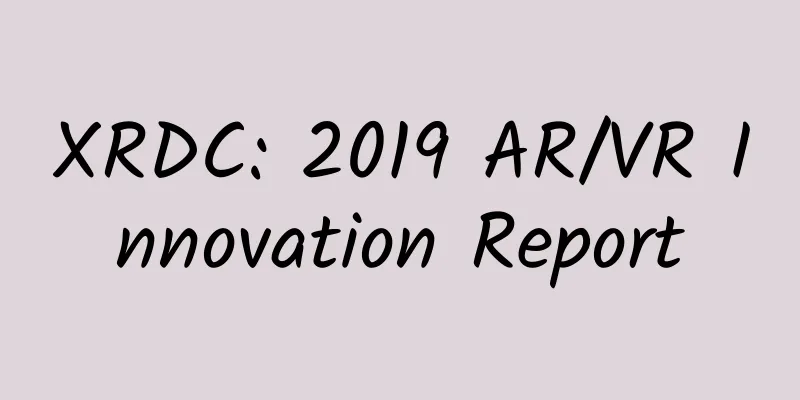XRDC: 2019 AR/VR Innovation Report

|
XRDC released the "2019 AR/VR Innovation Report". Games remain the primary focus of AR/VR/MR development. 59% of respondents said gaming was the most popular, 38% said entertainment (excluding gaming) was the second most popular focus, and 33% said they were focusing on educational programs. Combining some of the possible answers together, we found that 70% of developers are focused on games/entertainment, 37% are working on training/education projects, and 25% of respondents are focused on brand experience. Oculus Rift surpasses HTC Vive as top AR/VR/MR platform, Oculus Quest already generates huge interest When asked which AR/VR/MR platform respondents are currently developing for, 29% chose Oculus Rift, 24% chose Oculus Quest, and 24% chose HTC Vive. A similar split in interest was seen when surveying respondents on what platform their last project was published on, and what platform they were targeting for their next project. 30% of respondents’ last project was for Oculus Rift, 29% of developers’ last project was on HTC Vive, 22% of respondents’ last work was done on an Android phone or tablet via ARCore, and 12% chose Oculus Quest. Looking ahead to their next AR/VR/MR project, 30% of respondents said it will be released on Oculus Rift, 28% on Oculus Quest, and 24% on HTC Vive. Most AR/VR developers don’t care about adapting their work to 2D The majority (52%) said their current projects are designed specifically for AR/VR. 16% of respondents said that their current projects are being developed for both AR/VR and 2D, and only 5% said they are working on a 2D project that will be adapted for AR/VR. Most AR/VR/MR projects are still paid for from company coffers, but customer investment is increasing The most popular source of funding for AR/VR/MR development is the company’s existing funds (41%); funding from one or more customers is the second most popular source (27%). Most developers still don’t see short-term returns This year, 27% of respondents expect their AR/VR/MR projects to be profitable in the medium term, 23% expect long-term profitability, and 11% expect short-term returns. Only 11% of respondents said their projects are currently profitable, down from 14% last year. The PDF version will be shared to the 199IT exchange group. If you want to support our development, please join us! |
<<: Invoca: 85% of customer interactions are handled without a human
Recommend
A complete method for running a good event, with 12 cases
Even if the product's features and experience...
Data operation: How to use data analysis to achieve user growth?
What does data analytics mean for growth? How to ...
Forbes: Chinese Xbox One players will return to the grey market
China lifted its ban on game consoles six months a...
Avoid these 5 pitfalls when placing Google ads in 2019!
When placing Google ads, we sometimes choose diff...
2020 Teacher Gu's Modeling and Color Intermediate Class
2020 Teacher Gu's Modeling and Color Intermed...
Kuaigou Taxi's customer base tripled, was the brand name change a success?
Do you still remember Kuaigou Taxi, which grabbed...
Summary of new technologies in Android 6.0
Recently, Google officially released Android M, n...
Are you calling for the TV to be kicked out of the living room? Don't make trouble, it's still too early.
In 1924, the world's first television was lau...
Spiders play mahjong? This little spider throws a four-piece card at you!
What is March 14th? White Day? Pi Day? Not only t...
Could the ocean beneath Europa's icy surface harbor life? Europa Clipper sets out to find out
Artist's impression of the Europa Clipper pro...
The official version of iOS 16.1.1 will be released soon, fixing multiple issues!
It has been more than a month since the official...
For three hundred years, all things have been surging: this is Chang'an!
742 AD Li Bai left for Chang'an This time he ...
How to replicate the success of Jiang Xiaobai and Heytea?
Brand marketing is a discipline that combines sci...
What you must see when you go to Chunshan: mountains, peaks, ridges...what are the differences?
my country is a mountainous country, and many pro...









